‘I’ll never forget the ultrasound tech’s tone’
Hannah Cox knew something was wrong with her baby when the tone shifted in the room at her 12-week ultrasound.
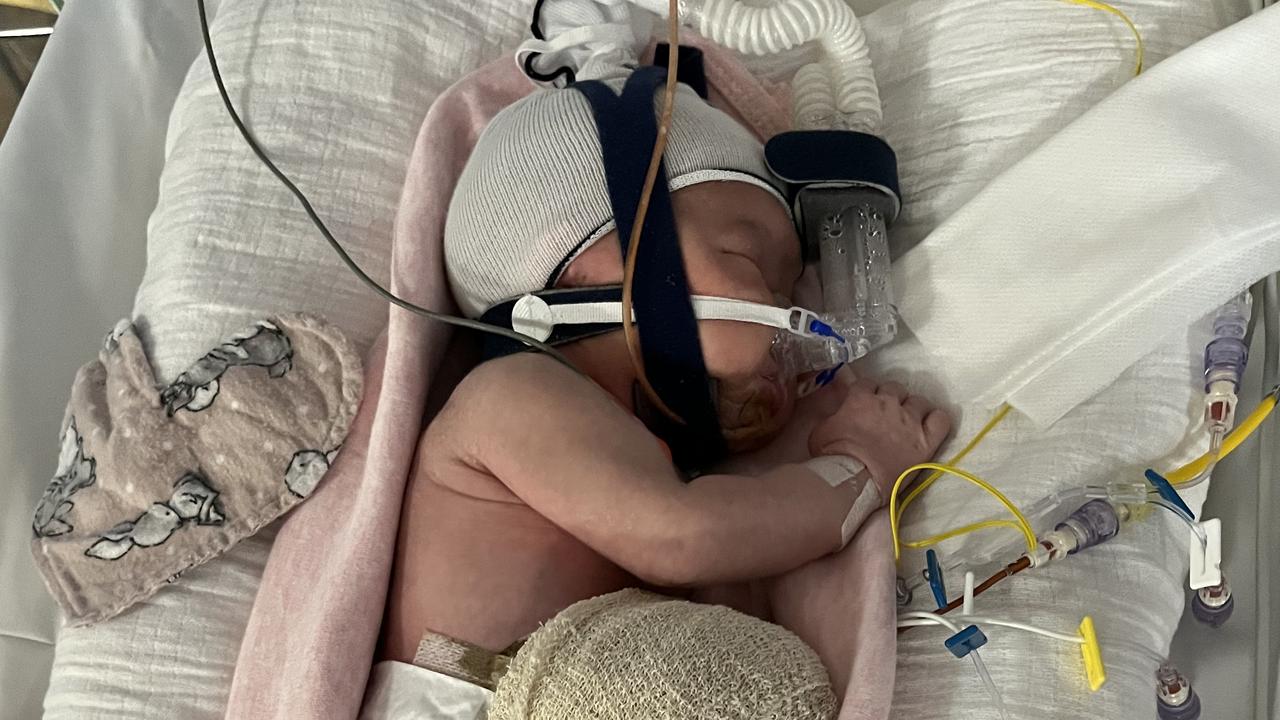
‘I’ll never forget the ultrasound tech’s tone’
Hannah Cox remembers the exact moment the energy in the room shifted at her 12-week ultrasound.
“They could tell it was my first time so naturally I was a little nervous anyway, and they were explaining everything in the ultrasound to me,” recalls the 28-year-old Sunshine Coast woman.
“Then, as they went down the baby’s body on the scan and did more measurements, the tone just changed and it all got a lot quieter.”
“I thought, OK, maybe it’s just my imagination – I’m naturally the kind of person who overthinks things anyway, and I thought, it’s probably nothing,” she continues.
“My appointment was the last one on a Friday afternoon and I’ll never forget the ultrasound tech’s tone. She said she’d send the results to my GP and I’d get the photos in a few days. As I left, she said ‘good luck with everything’, and she just sounded deflated.”
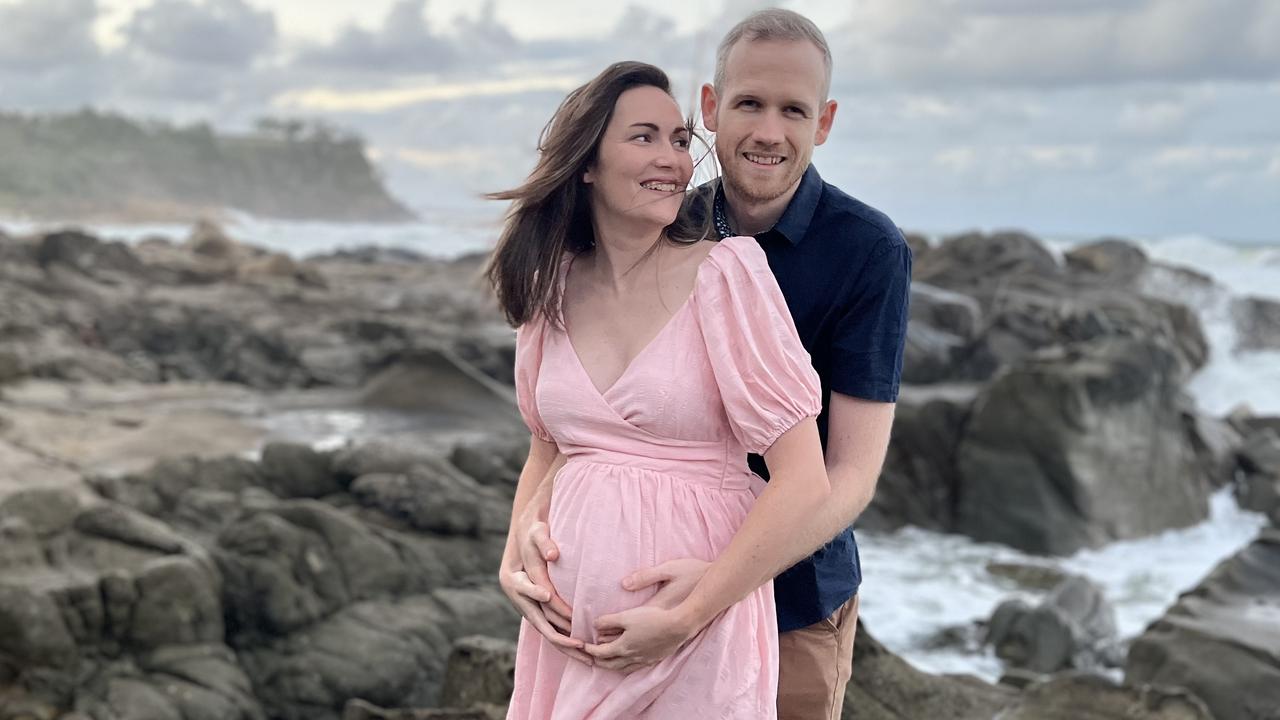
When Monday rolled around and Hannah got a call from her doctor asking her to bring a support person to her appointment, her heart sank. There, her intuition was confirmed: something was wrong with her baby.
Hannah’s baby had what is known as a giant omphalocele – a serious birth defect resulting in key organs growing into the umbilical cord.
Over the coming days, Hannah and her husband Simon were sent for a slew of tests and conversations with various specialists. While a lot of the memories from that period blur into one, some phrases are burned into Hannah’s mind.
“They said basically not to be too optimistic about the outcome,” she says. “It’s not a very good prognosis. And they said if your baby does survive, it’s going to be a fight for life, a real struggle or, you know, potentially not even compatible with life.”
About one in five babies with a giant omphalocele do not survive, but in spite of these odds, Hannah was determined to cherish every moment of her pregnancy.
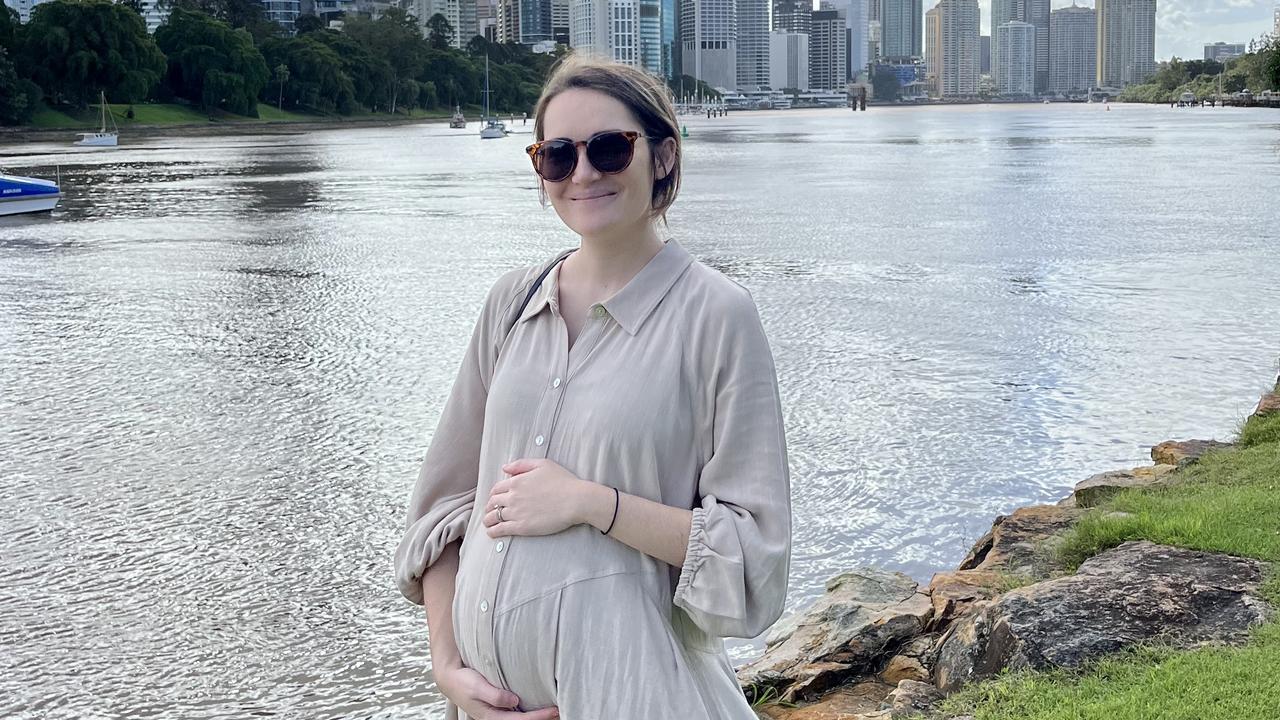
“I knew I needed to just go through it day by day myself, and give any chance of hope a go, because I was already so attached to this baby,” says the young mum. “I just said – this is a change of plan, a bit of a course-correction, it’s going to be hard but it’s a life worth fighting for. I was very adamant that no matter what happened it would be worth every moment, to just have any time with her at all.”
Hannah and Simon threw themselves into celebrating the sweeter moments of pregnancy, even amid the specialist appointments and uncertainty that swirled around every milestone.
“I was very determined not to let it slip away without cherishing it, especially knowing it was high risk,” she says.
“Even though you have so many ultrasounds, every ultrasound is another chance to see the baby and a reminder that you’re still progressing. They told me it could end any day, so if you’re moving forward It’s always something to cherish. We did a gender reveal and a baby shower and a lot of those normal, traditional things just to try to balance out all the heavy and hard stuff.”
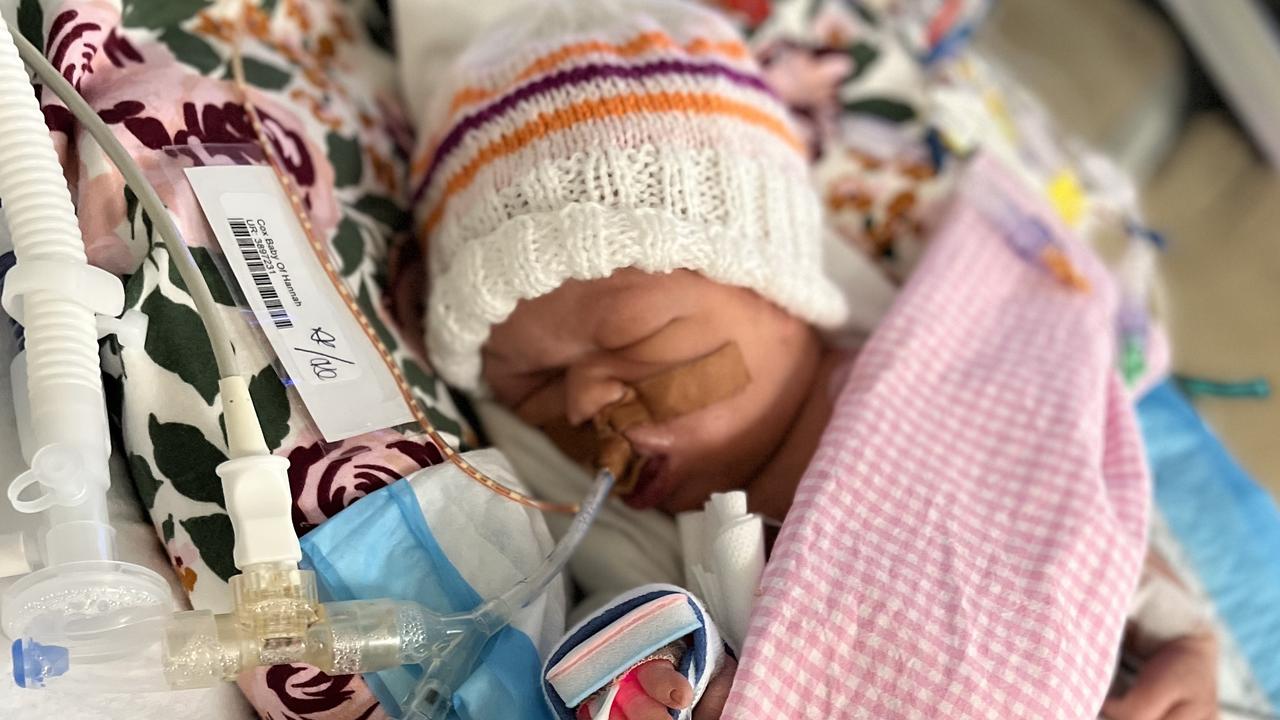
When the day arrived to meet her baby via scheduled C-section, the couple’s emotions were running high. There was a possibility that their baby girl would be rushed straight to surgery, and a specialist neonatal team at Mater Hospital was assembled.
“I was proud we’d come this far, and excited to just hold her and meet her,” says Hannah, “but it also can’t take away the anxiety of walking into a C-section with 10 or 15 people surrounding you.”
Mater maternal foetal medicine fellow James Aridas performed the caesarean section using a bigger-than-usual incision to ensure the sac containing the baby’s vital organs wasn’t damaged.
Then – with a cry that brought sweet relief to everyone in the room and none more than her brave mum, baby Elsie Kathleen Cox, came into the world.
“It was such a beautiful moment among it all,” says Hannah, the emotion of the moment still catching in her throat.
“There were people everywhere. It was very hectic, and you could feel the seriousness of the situation, but then that little cry was – it was just a beautiful, beautiful sound.”
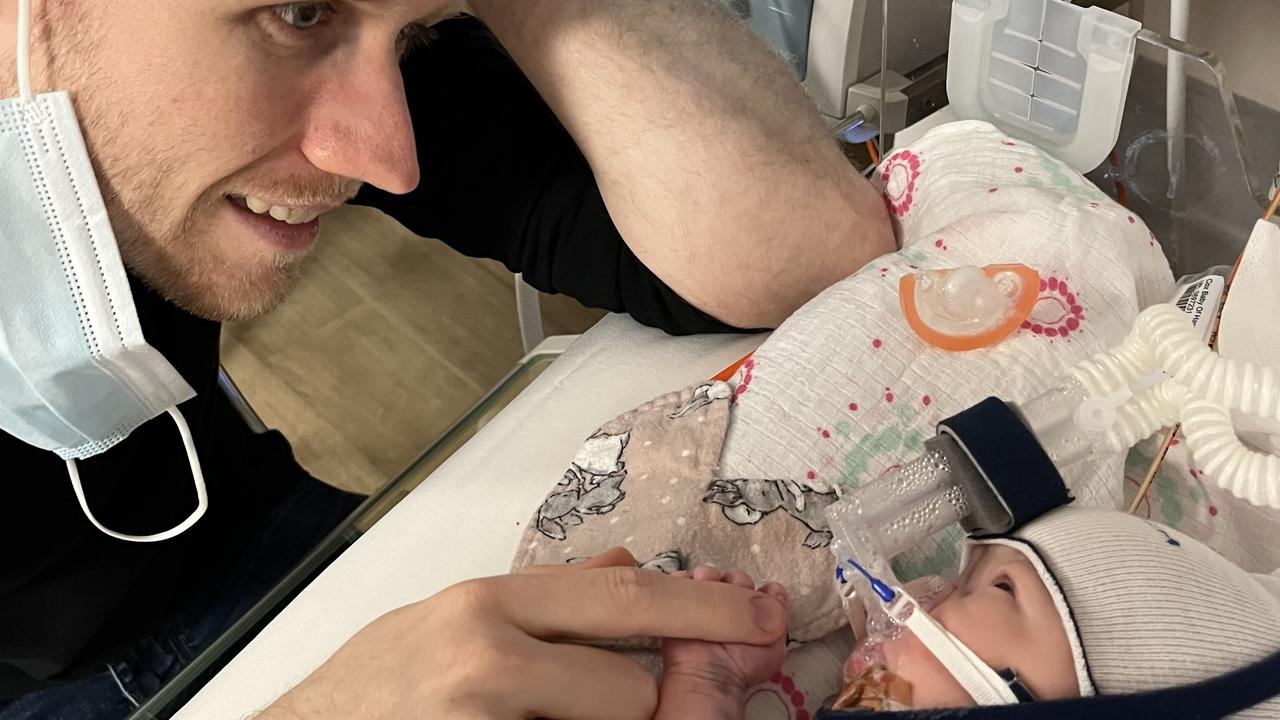
Elsie was quickly whisked away to the resuscitation room, where she was placed on a ventilator. For the first few days of her life, the only way Hannah could comfort her baby girl was to hold onto her hand.
“She was covered in wires and sedated,” says Hannah, “it was a hard, hard way to meet her, but at the same time I was just so happy to be able to hold her little hand.”
Elsie had been born with her liver, stomach and intestines growing outside her body, which was creating problems with her lungs as well, in what Mater staff described as the biggest omphalocele they’d seen. The tiny baby’s condition over the first few days of her life was grave, and she was deemed “too sick” for the surgery doctors had been considering. Instead, Elsie’s organs were covered in silver dressing (a common treatment to help burns victims regrow skin) to promote skin growth over the bulge in her abdomen.
It was four days before Hannah was able to hold Elsie, and even then, the process wasn’t a simple one.
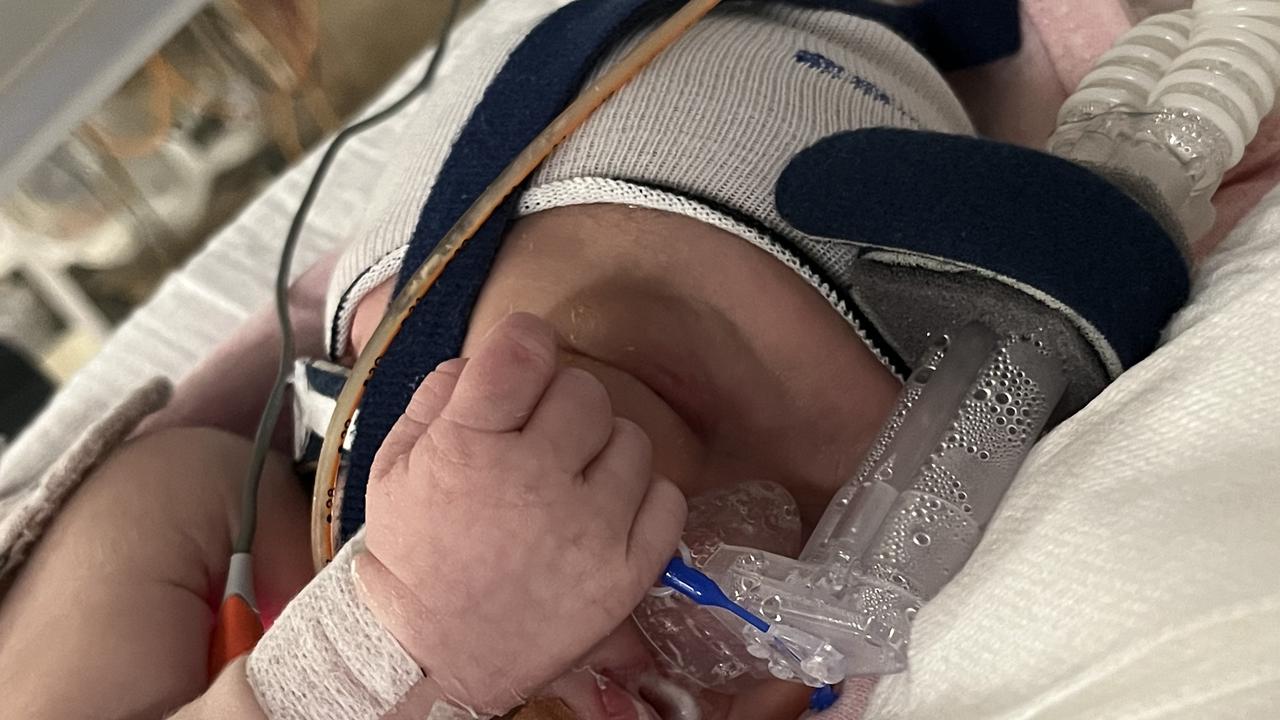
“She was still intubated at the time, and it took about four or five nurses to help pick her up because we had to lift that many cords to get her onto me. When they first picked her up her oxygen was dropping, and it was really scary for a minute, but then once we were there, she
stabilised and did really well, just having that skin-to-skin with me. It was just an incredible moment.”
After seven weeks at Mater Mothers’ and then another four in the Children’s Hospital, Hannah and Simon were able to bring their “little miracle” home.
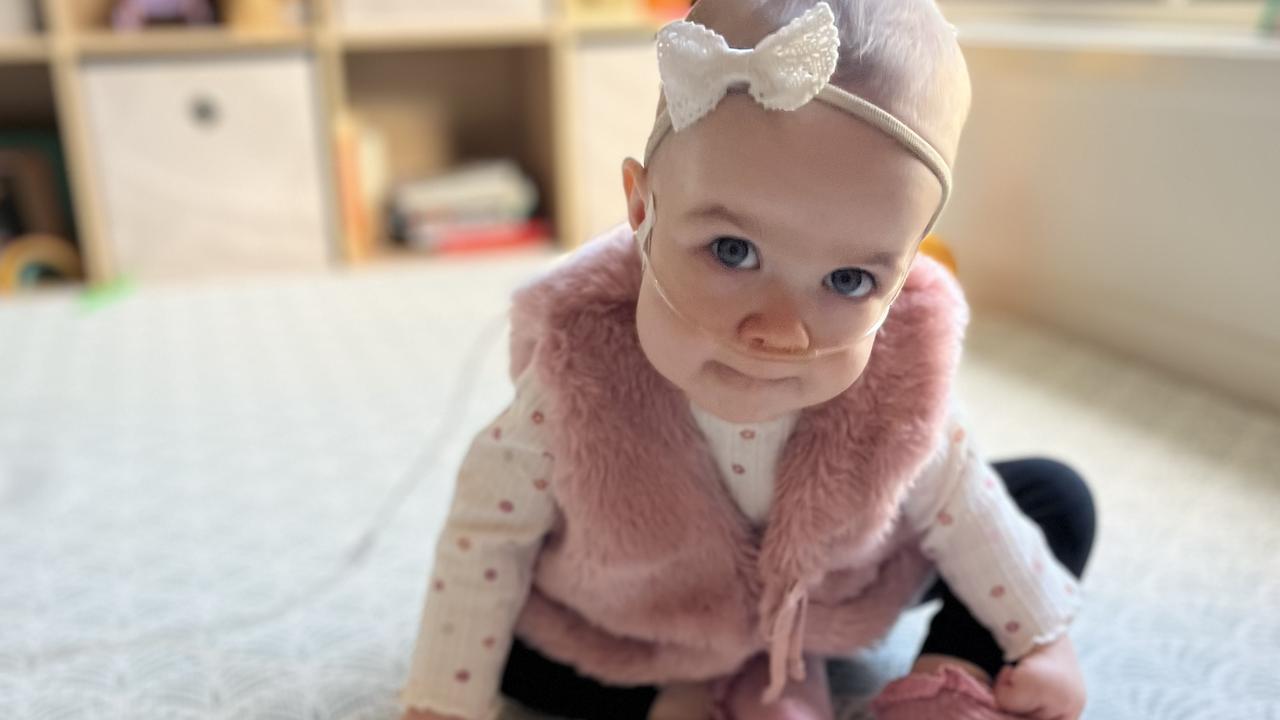
Hannah credits Mater’s internationally recognised maternal foetal medicine centre with not only supporting the family medically, but emotionally as well.
“I always knew we had a good healthcare system and was always so appreciative of it, but seeing it first-hand is something else,” she recalls.
“Just the whole team, how many people were involved in the process and the equipment, facilities and emotional support – it’s just incredible and I definitely will be forever grateful for it.”
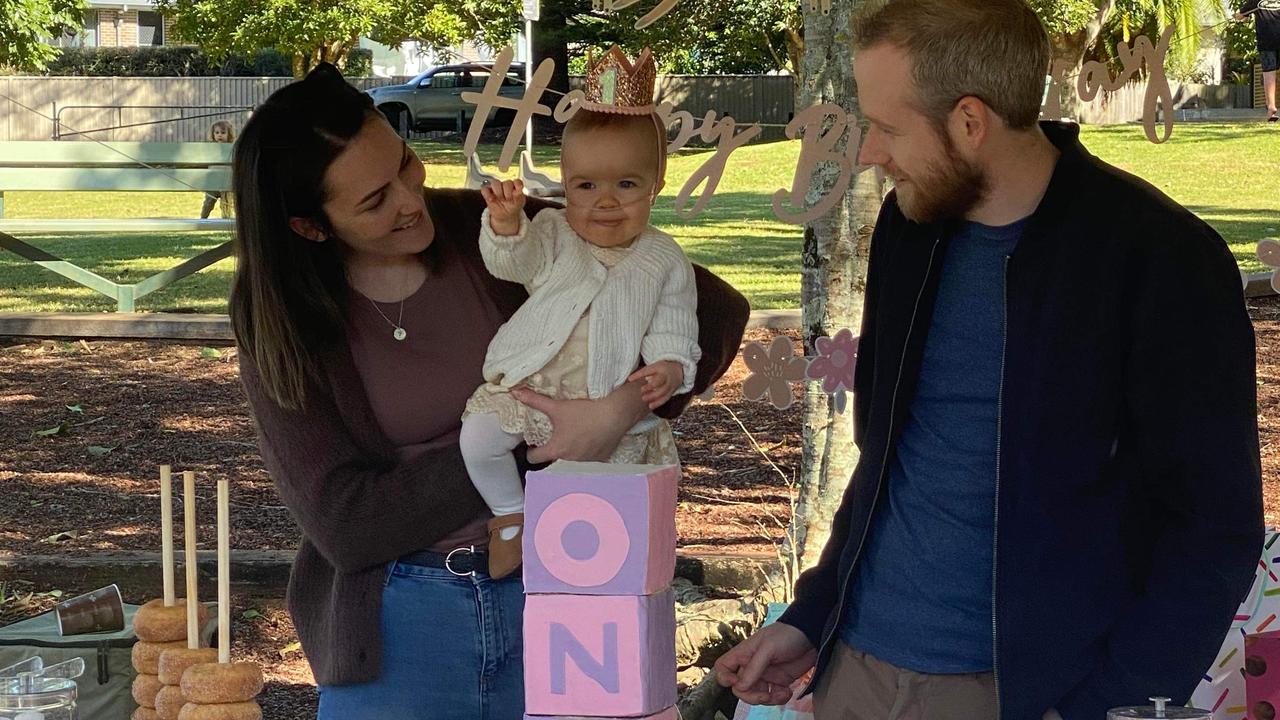
Gravity and the Elsie’s natural growth have meant that most of her organs have shifted back into place inside her abdominal cavity, and while the determined toddler (“she’s excellent at bum-shuffling around the room,” laughs Hannah) still uses oxygen until her lungs grow a little more, doctors – and her proud parents – are thrilled with Elsie’s progress.
“Obviously I have nothing to compare it to, because she is my first baby,” says Hannah, “but just – every single milestone, every new thing she does – I’m just so proud. She’s just incredible – every little bit of anxiety, she’s so worth it.”
Proceeds from Mater Prize Home ticket sales support vital medical research, equipment and patient care at Mater in Queensland. You can find out more here.



